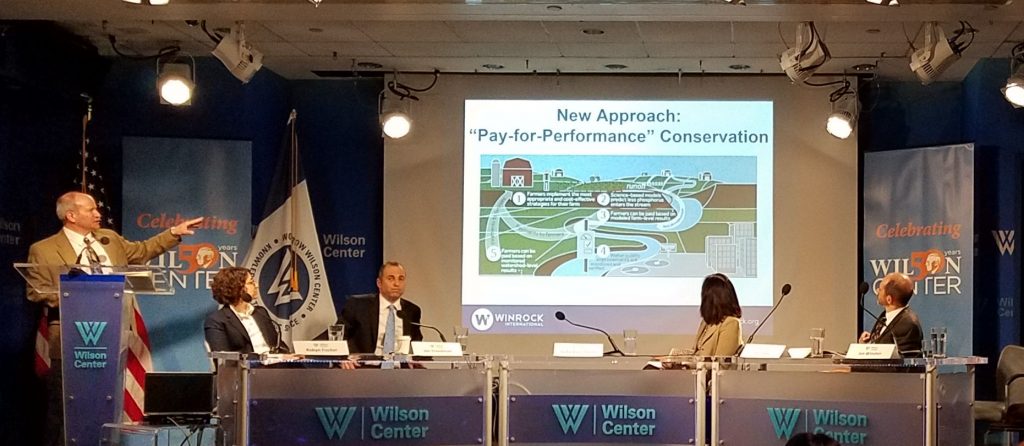
Went to “Sustainable Water, Resilient Communities: Solutions for Dirty Water” at Wilson Center today. I will put links to the program in the comments.
I got to stand up and ask my question about biosolids, but mostly it was just fun to listen.
I had a couple take-aways from each speaker.
Moderator Eric Viala had a good point about helping people. We are all about saving lives, but if we have to save the same people over-and-over, maybe we are not getting anywhere. We might reconsider our approach.
Sasha Koo-Oshima re-framed waste. Wastewater is an undervalued resource, she said. We should start calling sewage plants “Resource Recovery Facilities.” This is really true, especially re biosolids.
Robyn Fischer reminded us to pay attention to women. Women make a lot of the decisions about water use. Beyond that, the best way to curb population growth is to educate and empower women.
My favorite was Jon Winsten. He advocated incentives to farmers, pay for performance. he pointed out that prescriptive regulations reduce productivity and are often not effective. We get better results by being flexible. Giving farmers choices recruits their intelligence and ingenuity.
A problem is that non-point source pollution is hard to measure, so we often have to pay for process. They do some things and we have reasonable faith that it works. Best management practices are good, but they can be made better by proactive measures by farmers who know their land better than anyone else.
Winsten argued for a mixed program where farmers get payments for the good things they do on their farms (ecological services) but also a bonus for the total watershed. This helps them think bigger and maybe recruit their fellow farmers. Nobody is trusted as much as a neighbor.
Finally, Jon Freedman talked about his company, Suez. They can clean water to make it drink quality. The problem is not the purity, but the perception. People just do not like to drink water that is recycled. It is a PR problem.
All water is recycled. No new water, at least not much, has come to earth in more than 4 billion years. All the water we drink has been through billions of kidneys and mixed with oceans of shit and yet it comes back to use clean as rain.
—
Water is generally under priced. We hear talk about water as a human right and SOME water is. But if we make it generally a right, we will surely make it scarce. We need a price on water.
—
Wilson does good programs. I often attend and learn each time. My picture shows Jon Winsten speaking in front of the panel.
